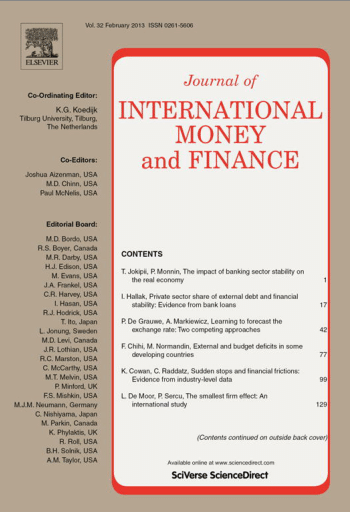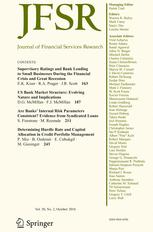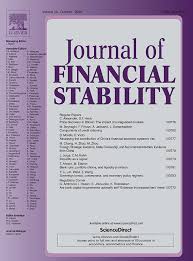Financial System Adaptability and Resilience
Financial systems differ across countries and tend to evolve slowly over time. Their structure is typically stable, but their resilience is often tested. A well-functioning financial system is vital for economic development, as it ensures that capital flows to the most productive and valuable investment opportunities. However, systemic vulnerabilities can have far-reaching consequences. For example, the 2007–08 global financial crisis emerged from within the financial sector itself when complex financial products fuelled a credit bubble in the U.S. housing market, threatening global economic stability when the bubble burst. That event led to extensive policy and regulatory reforms to strengthen financial system resilience.
Financial systems continue to face significant challenges. External shocks like the COVID-19 pandemic, the climate crisis, the green economic transition, and the energy crisis driven by geopolitical conflict all underscore the importance of financial systems that can absorb shocks and adapt to changing economic conditions. Motivated by these pressing issues, we investigate how financial systems respond to crises, which institutions and policies improve resilience, and the role of finance systems' setup in broader economic transformations. We use diverse data sources, including bank and firm-level data, regulatory reports, and house price and election data, to inform evidence-based policy.
Research Cluster
Financial Resilience and RegulationYour contact

- Department Financial Markets
EXTERNAL FUNDING
08.2022 ‐ 07.2025
OVERHANG: Debt overhang and green investments - the role of banks in climate-friendly management of emission-intensive fixed assets
The collaborative project “Debt Overhang and Green Investments” (OVERHANG) aims to investigate the role of banks in the climate-friendly management of emission-intensive fixed assets. This will identify policy-relevant insights on financial regulation, government-controlled lending and financial stability, as well as raise awareness among indebted stakeholders.
01.2015 ‐ 12.2019
Interactions between Bank-specific Risk and Macroeconomic Performance
07.2016 ‐ 12.2018
Relationship Lenders and Unorthodox Monetary Policy: Investment, Employment, and Resource Reallocation Effects
Leibniz Association
We combine a number of unique and proprietary data sources to measure the impact of relationship lenders and unconventional monetary policy during and after the European sovereign debt crisis on the real economy. Establishing systematic links between different research data centers (Forschungsdatenzentren, FDZ) and central banks with detailed micro-level information on both financial and real activity is the stand-alone proposition of our proposal. The main objective is to permit the identification of causal effects, or their absence, regarding which policies were conducive to mitigate financial shocks and stimulate real economic activities, such as employment, investment, or the closure of plants.
Refereed Publications

The Diplomacy Discount in Global Syndicated Loans
in: Journal of International Money and Finance, February 2022
Abstract
This paper investigates whether state-to-state political ties with the United States affect the pricing of global syndicated loans. We find that a one-standard-deviation improvement in state political ties between the U.S. and the government of a borrower’s home country is associated with a 14.7 basis points lower loan spread, shaving off about 11.8 million USD in interest payments over the duration of the average loan for borrowers. Results also show that the effect of political ties is stronger for narrower and more concentrated loan syndicates, when lead arrangers are U.S. banks, during periods in which the U.S. is engaged in armed conflicts, when the U.S. president belongs to the Republican Party, and for borrowers with better balance sheets and prior lending relationships. Notably, not all firms benefit equally, as cross-listed firms and firms in countries with strong institutional quality and ability to attract institutional investors are much less affected by political ties.

Do Banks Value Borrowers' Environmental Record? Evidence from Financial Contracts
in: Journal of Business Ethics, December 2021
Abstract
Banks play a unique role in society. They not only maximize profits but also consider the interests of stakeholders. We investigate whether banks consider firms’ pollution records in their lending decisions. The evidence shows that banks offer significantly higher loan spreads, higher total borrowing costs, shorter loan maturities, and greater collateral to firms with higher levels of chemical pollution. The costly effects are stronger for borrowers with greater risk and weaker corporate governance. Further, the results show that banks with higher social responsibility account for their borrowers’ environmental performance and charge higher loan spreads to those with poor performance. These results support the idea that banks with higher social responsibility can promote the practice of business ethics in firms.

Political Uncertainty and Bank Loan Contracts: Does Government Quality Matter?
in: Journal of Financial Services Research, December 2021
Abstract
We investigate the relation between political uncertainty and bank loan spreads using a sample of loan contracts for the G20 firms during the period from 1982 to 2015. We find that banks charge firms higher loan spreads and require more covenants during election years when domestic political risks are elevated. Greater differences in the support ratios of opinion polls on candidates lead to the lower cost of bank loans. This political effect also lessens when the government quality of the borrower’s country is better than that of the lender’s country. Better quality government can lower the political risk component of bank loan spreads.

The Impact of Political Uncertainty on Institutional Ownership
in: Journal of Financial Stability, December 2021
Abstract
This paper provides original evidence from institutional investors that political uncertainty greatly affects investment behavior. Using institutional holdings of common stock, we find that institutions significantly reduce their holdings by 0.8–2.3% points during presidential election years. Such effect holds for gubernatorial elections with cross-state-border difference-in-difference analysis and for tests using a political uncertainty index. The effect is the opposite for American Depository Receipts (ADRs). In addition, we find that institutions benefit financially from the observed strategy, and such strategy is in line with predicted outcomes of presidential election polls.

Banking Globalization, Local Lending, and Labor Market Effects: Micro-level Evidence from Brazil
in: Journal of Financial Stability, October 2021
Abstract
Recent financial crises have prompted the interest in understanding how banking globalization interacts with domestic institutions in shaping foreign shocks’ transmission. This paper uses regional banking data from Brazil to show that a foreign funding shock to banks negatively affects lending by their regional branches. This effect increases in the presence of frictions in internal capital markets, which affect branches’ capacity to access funding from other regions via intra-bank linkages. These results also matter on an aggregate level, as municipality-level credit and job flows drop in exposed regions. Policies aiming to reduce the fragmented structure of regional banking markets could moderate the propagation of foreign shocks.
Working Papers

Corporate Governance Structures and Financial Constraints in Multinational Enterprises – An Analysis in Selected European Transition Economies on the Basis of the IWH FDI Micro Database 2013 –
in: IWH Discussion Papers, No. 3, 2015
Abstract
In our analysis, we consider the distribution of decision power over financing and investment between MNEs’ headquarters and foreign subsidiaries and its influence on the foreign affiliates’ financial restrictions. Our research results show that headquarters of multinational enterprises have not (yet) moved much decision power to their foreign subsidiaries at all. We use data from the IWH FDI Micro Database which contains information on corporate governance structures and financial restrictions of 609 enterprises with a foreign investor in Hungary, Poland, the Czech Republic, Slovakia, Romania and East Germany. We match data from Bureau van Dijk’s AMADEUS database on financial characteristics. We find that a high concentration of decision power within the MNE’s headquarter implicates high financial restrictions within the subsidiary. Square term results show, however, that the effect of financial constraints within the subsidiary decreases and finally turns insignificant when decision power moves from headquarter to subsidiary. Thus, economic policy should encourage foreign investors in the case of foreign acquisition of local enterprises to leave decision power within the enterprise and in the case of Greenfield investment to provide the newly established subsidiaries with as much power over corporate governance structures as possible.



















